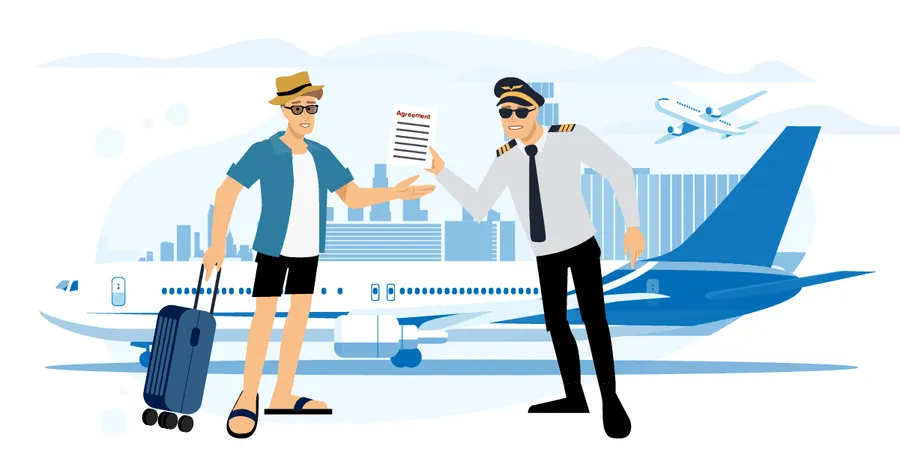
A quick result with the air carrier - does it pay off?
Was your flight was delayed or cancelled, and the carrier offered you a quick settlement with the payment of symbolic compensation, e.g. 100 euro? Have you signed such a settlement and do you feel that you have allowed yourself to be manipulated? Don't worry! You are still entitled to compensation for the full amount owed to you.
Pursuant to the content of Article 15 section 1 of Regulation No. 261/2004 of February 11, 2004, establishing common rules on compensation and assistance to passengers in the event of denied boarding, cancellation or long flight delay (EU Journal of Laws 46 of February 17, 2004), no liability to passengers under this Regulation may be limited or waived, notably by an exclusion or limitation clause in the contract of carriage. This means (through the use of the term "especially") that such a limitation does not have to be included in the contract of carriage, and may take the form of, inter alia, a settlement concluded with the passenger.
In turn, according to Article 15 section 2 of this provision, if the aforementioned exclusion or limitation clause is nevertheless applied to the passenger or if the passenger has not been properly informed of his rights and, as a result, he has agreed to compensation lower than that provided for in this regulation, he is entitled to take the necessary steps before the courts or competent authorities in order to obtain supplementary compensation. Therefore, it means that even in the case of signing a settlement for an amount lower than that resulting from the provisions of Article 7 of the Regulation, such a passenger may claim the missing amount of compensation.
Also on the basis of the provisions of Polish law, the conclusion of a settlement in which the passenger waives further obligations should be considered invalid in accordance with the content of Article 58 § 1 of the Civil Code, a legal act contrary to the provisions of law – including the provisions of EU law – or aimed at circumventing these provisions, is invalid. In addition, it follows from § 3 of this provision that if only part of the legal act is invalid, the Act remains in force with regard to the remaining parts. This means that a passenger who receives a part of the compensation from the carrier does not have to return this part, if he considers that the concluded settlement was invalid – he can simply claim supplementary compensation from the carrier.
Regardless of the provisions of Article 58 of the Civil Code, it should also be noted that the agreement concluded by the passenger with the carrier is a contract subject to the same legal rules as any other contract. Therefore, in accordance with the content of Article 3853 point 2 of the Civil Code, an illegal provision should be considered, inter alia, such provisions that exclude or significantly limit liability to the consumer for non-performance or improper performance of an obligation. Compensation under Article 7 of Regulation 261/2004 is precisely compensation for non-performance or improper performance of an obligation, which means that on the basis of the above-cited provisions, a contractual provision would be required to waive further compensation for a prohibited clause, and thus for a provision not binding on the consumer (pursuant to Art. 3851 of the Civil Code).
It is also worth paying attention to the risk borne by the carrier when concluding such agreements – the systemic use of settlements depriving passengers of the right to full compensation undoubtedly constitutes a violation of the collective interests of consumers. In such a situation, the Office of Competition and Consumer Protection may initiate proceedings against this entity and punish it with a fine of up to 10% of the entrepreneur's annual turnover.
Finally, even if the concluded agreement was deemed effective, the consequences of its conclusion may be evaded by applying Art. 84 of the Civil Code. Pursuant to the content of this provision, in the event of an error as to the content of a legal act, it is possible to avoid the legal consequences of one's declaration of will. However, if the declaration of will was made to another person, evasion of its legal effects is allowed only if the error was caused by that person, even without his fault, or if he knew about the error or could easily notice the error.
This means that in a situation where the passenger did not know about the full amount of compensation due to him and acted in a hurry, under some pressure from the carrier, he may evade the effects of the settlement by submitting an appropriate statement to the carrier - such a statement may also be made on his behalf by the trial power of attorney, such as attorneys and legal advisers representing AirCashBack clients.
